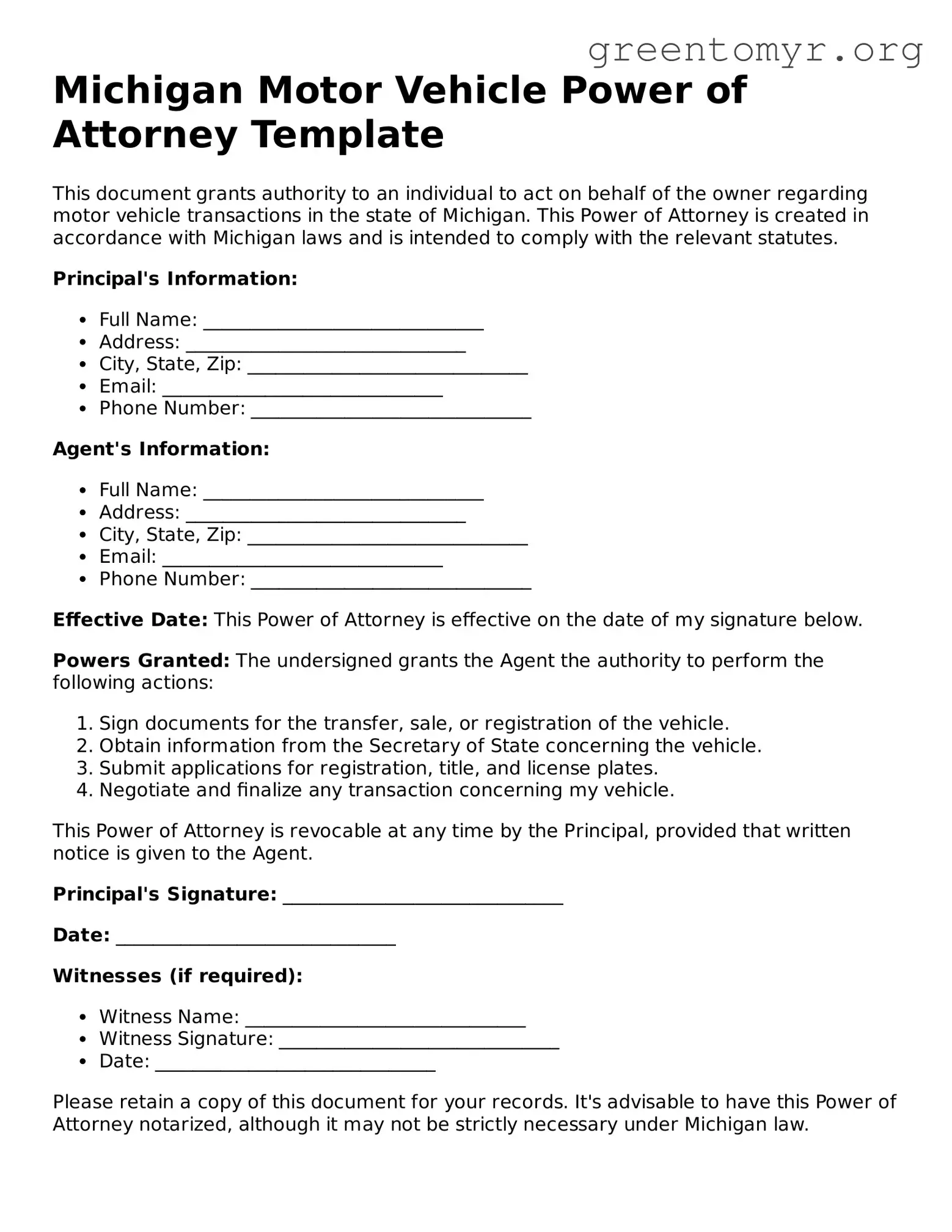Michigan Motor Vehicle Power of Attorney Template
This document grants authority to an individual to act on behalf of the owner regarding motor vehicle transactions in the state of Michigan. This Power of Attorney is created in accordance with Michigan laws and is intended to comply with the relevant statutes.
Principal's Information:
- Full Name: ______________________________
- Address: ______________________________
- City, State, Zip: ______________________________
- Email: ______________________________
- Phone Number: ______________________________
Agent's Information:
- Full Name: ______________________________
- Address: ______________________________
- City, State, Zip: ______________________________
- Email: ______________________________
- Phone Number: ______________________________
Effective Date: This Power of Attorney is effective on the date of my signature below.
Powers Granted: The undersigned grants the Agent the authority to perform the following actions:
- Sign documents for the transfer, sale, or registration of the vehicle.
- Obtain information from the Secretary of State concerning the vehicle.
- Submit applications for registration, title, and license plates.
- Negotiate and finalize any transaction concerning my vehicle.
This Power of Attorney is revocable at any time by the Principal, provided that written notice is given to the Agent.
Principal's Signature: ______________________________
Date: ______________________________
Witnesses (if required):
- Witness Name: ______________________________
- Witness Signature: ______________________________
- Date: ______________________________
Please retain a copy of this document for your records. It's advisable to have this Power of Attorney notarized, although it may not be strictly necessary under Michigan law.
